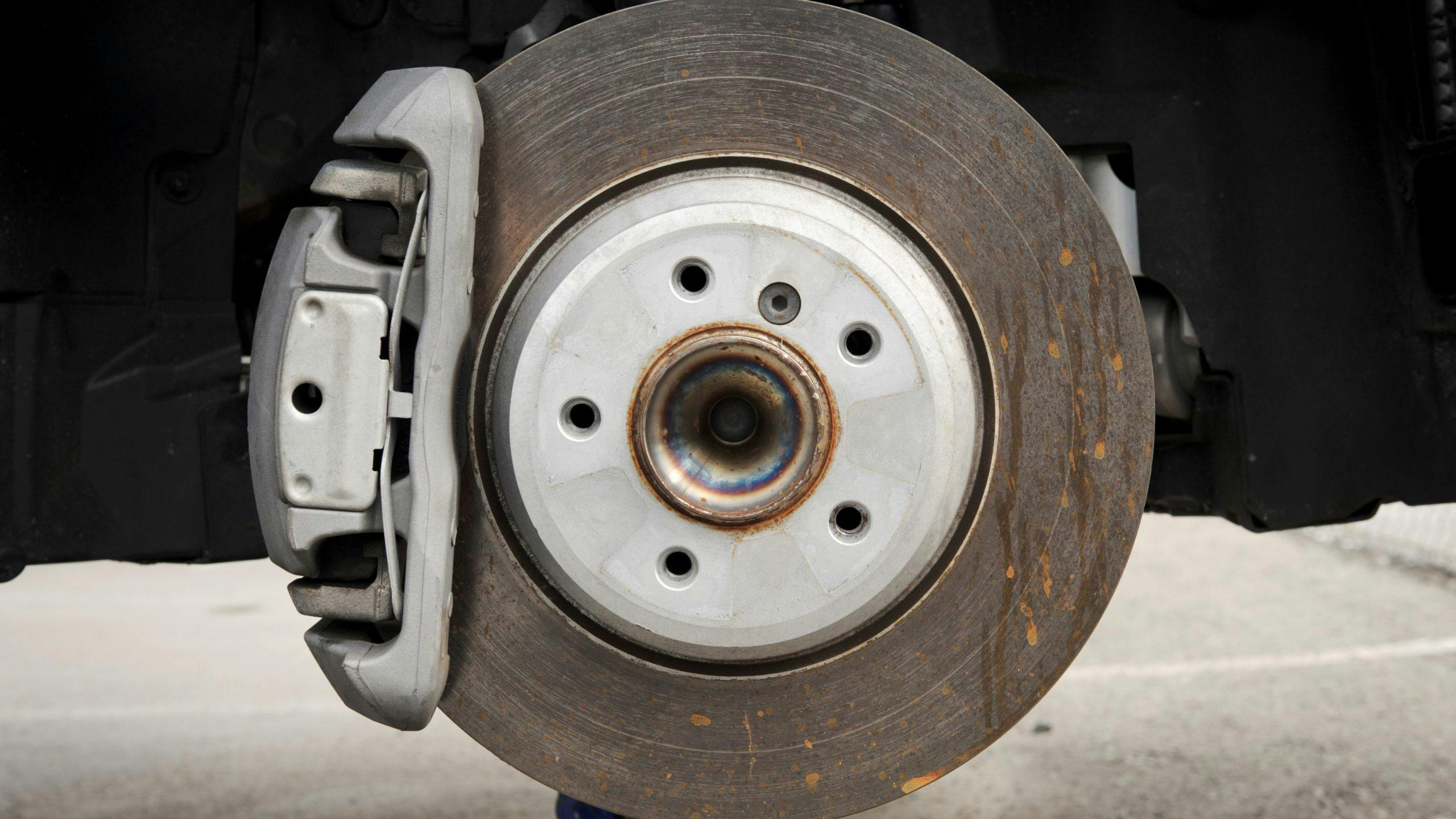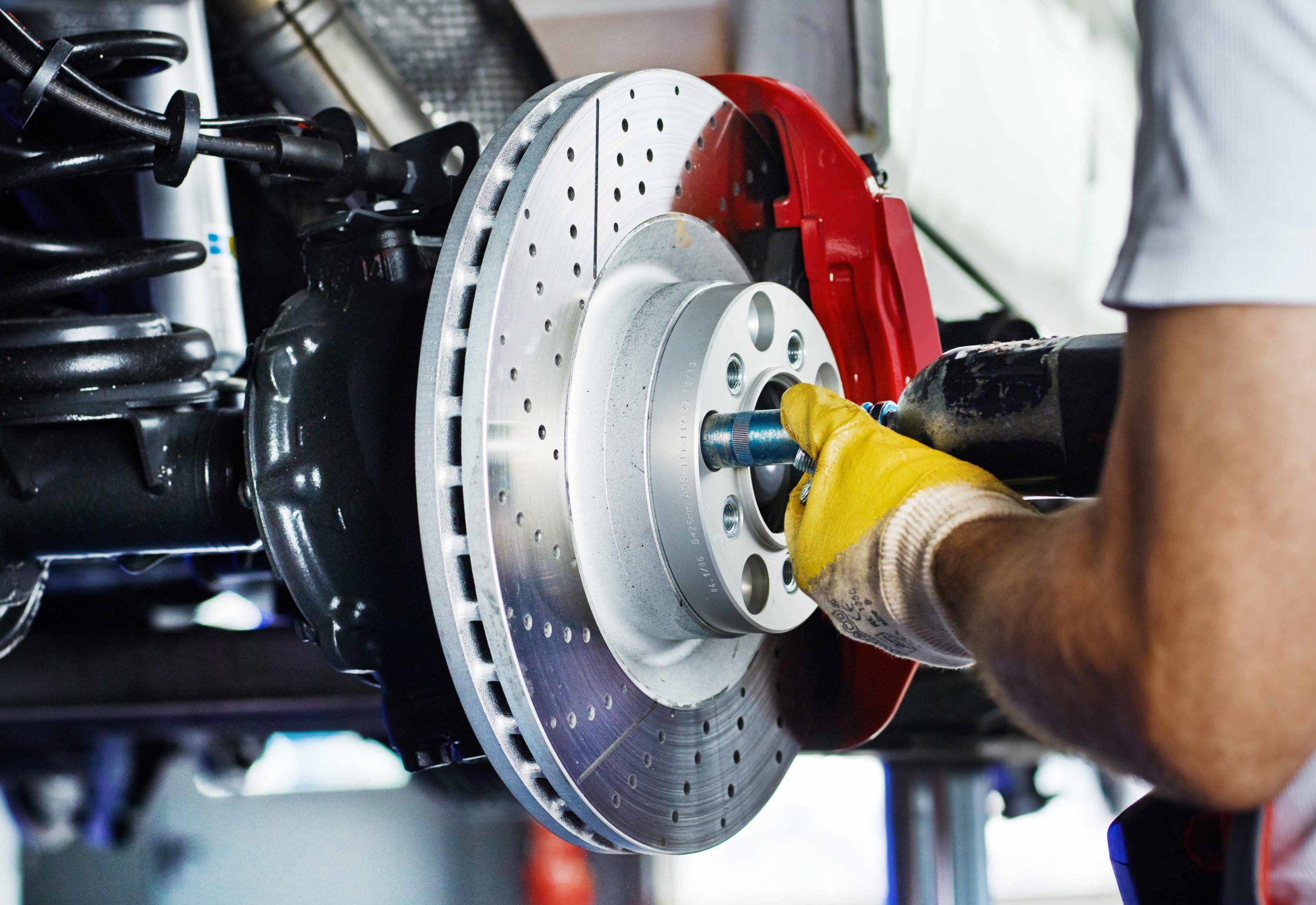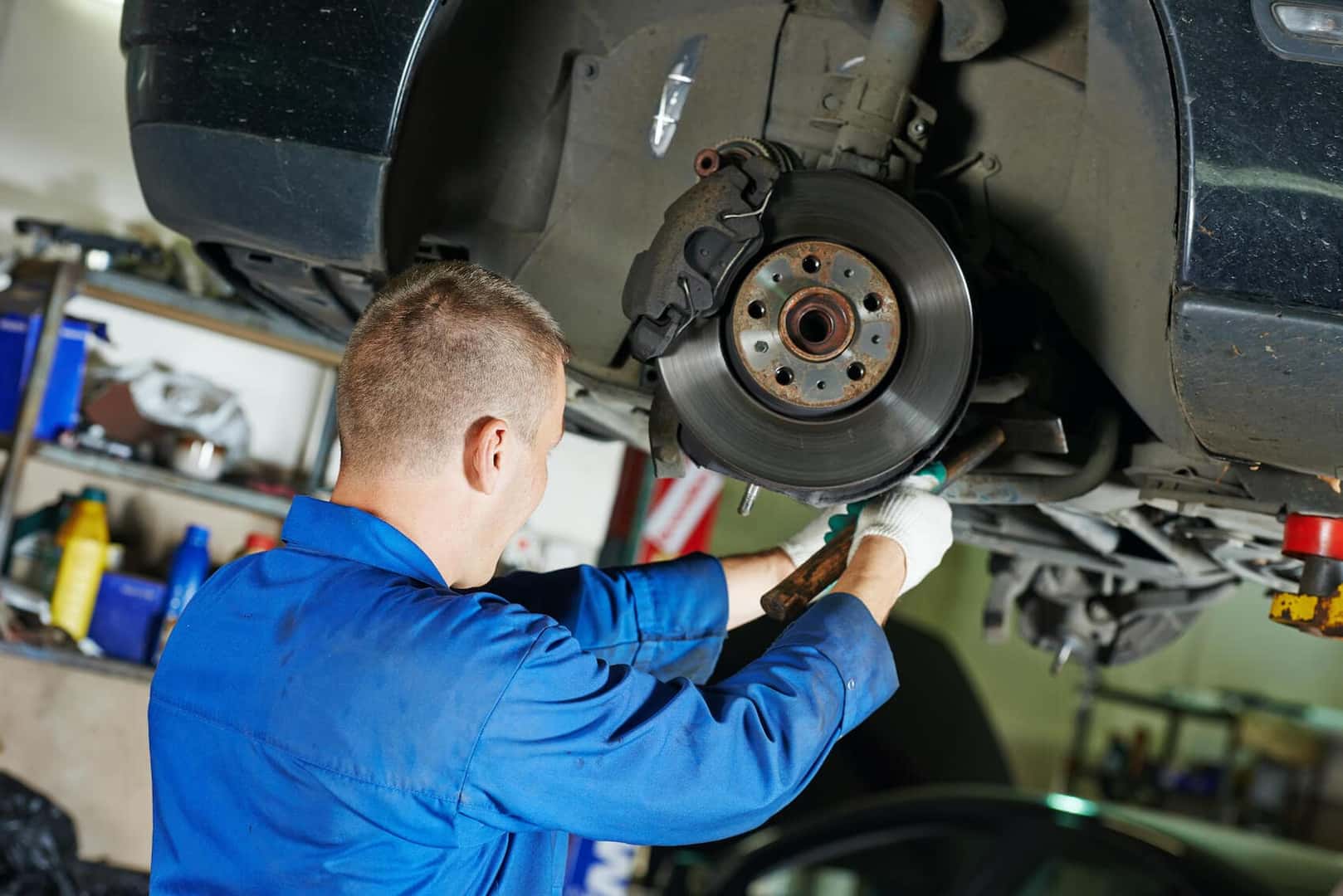Quick Fix: 7 Proven Ways to Stop Squeaky Car Brakes Temporarily (Works in Minutes)
Quick Fix: 7 Proven Ways to Stop Squeaky Car Brakes Temporarily (Works in Minutes)

Why Your Car Brakes Are Squeaking (5 Main Causes)
Before attempting any temporary fix, it's crucial to understand what's causing your brake squeaking. Different causes require different solutions, and some warning signs indicate serious safety issues that need immediate professional attention.
1. Worn Brake Pads (Most Common)
Modern brake pads contain built-in wear indicators—small metal tabs that contact the rotor when pad thickness drops below 3mm. This creates a deliberate squeaking sound to alert you that replacement is needed. This is not a temporary issue and requires immediate brake pad replacement to prevent rotor damage.
2. Moisture and Surface Rust
Overnight condensation or rain creates a thin rust layer on brake rotors. This typically causes squeaking during your first few stops but disappears as the rust burns off. This is completely normal and safe.
3. Dirty or Contaminated Brake Components
Brake dust, road debris, and dirt accumulation between pads and rotors creates friction-based squeaking. This is easily fixed with proper cleaning and represents the best candidate for temporary DIY solutions.

4. Glazed Brake Pads or Rotors
Excessive heat from aggressive braking or towing creates a smooth, hardened surface on brake pads or rotors. This reduces friction and causes squeaking while compromising braking performance. Glazing requires mechanical intervention to restore proper braking function.
5. Improper Installation or Lack of Lubrication
Missing brake hardware, dry caliper pins, or insufficient anti-squeal compound on pad backing plates creates vibration-induced squeaking. These installation issues are fixable with proper maintenance.
7 Temporary Solutions That Actually Work
Important Safety Note: These solutions are temporary fixes for minor squeaking. If you hear grinding noises, experience reduced braking power, or notice brake warning lights, stop driving immediately and consult a professional mechanic.

Method 1: Brake Cleaner Spray (5-10 Minutes)
Best for: Dirt, dust, and debris-related squeaking
- Remove the wheel to access brake components
- Spray brake cleaner liberally on rotors and visible pad surfaces
- Allow components to air dry completely (2-3 minutes)
- Reinstall wheel and test drive at low speeds
Effectiveness: 70-80% success rate for dirt-related squeaking
Method 2: Anti-Squeal Brake Lubricant (15-20 Minutes)
Best for: Hardware-related squeaking and vibration
- Remove brake pads (requires basic mechanical knowledge)
- Apply thin layer of brake lubricant to pad backing plates (NOT friction surfaces)
- Lubricate caliper pins and contact points
- Reinstall pads ensuring proper seating
Effectiveness: 80-90% success rate for vibration-based squeaking

Method 3: Light Sanding for Glazed Pads (20-30 Minutes)
Best for: Glazed brake pads with reduced effectiveness
- Remove brake pads from calipers
- Use 120-grit sandpaper to lightly sand pad surfaces
- Create crosshatch pattern for improved friction
- Clean thoroughly with brake cleaner before reinstallation
Effectiveness: 60-75% success rate for glazing-related issues
Method 4: Bedding-In Process for New Brakes (10-15 Minutes)
Best for: New brake pads or rotors squeaking
- Perform 8-10 moderate stops from 35 mph to 5 mph
- Allow 30-second cooling intervals between stops
- Avoid complete stops during bedding process
- Drive normally after completion
Method 5: WD-40 Emergency Treatment (2-3 Minutes)
Best for: Emergency situations only
Warning: This is a very temporary solution that may reduce braking effectiveness. Use only in emergency situations and have brakes professionally inspected immediately.
- Spray small amount on rotor edges (NOT friction surfaces)
- Test brakes at very low speeds before normal driving
- Schedule professional brake inspection within 24 hours
Method 6: High-Temperature Grease Application (25-30 Minutes)
Best for: Caliper-related squeaking
- Apply high-temperature brake grease to caliper slides
- Lubricate brake hardware and shims
- Ensure proper caliper movement and alignment
Method 7: Brake Component Inspection and Cleaning (30-45 Minutes)
Best for: Comprehensive temporary fix
- Remove wheels and inspect entire brake assembly
- Clean all components with brake cleaner
- Check for loose hardware or missing components
- Apply appropriate lubricants to all contact points

When Temporary Fixes Won't Work
Some brake squeaking indicates serious safety issues that require immediate professional attention:
- Grinding noises: Metal-on-metal contact indicating completely worn pads
- Brake warning lights: Electronic system detecting brake problems
- Reduced stopping power: Compromised braking effectiveness
- Vibration during braking: Warped rotors or caliper issues
- Brake pedal changes: Spongy, hard, or pulsating pedal feel
Prevention Tips for Long-Term Brake Health
Prevent future squeaking with these maintenance practices:
- Quality brake pads: Invest in ceramic or semi-metallic pads for quieter operation
- Regular cleaning: Clean brake components every 6 months
- Gentle braking habits: Avoid aggressive stops and hard braking
- Professional inspections: Annual brake system evaluation
- Proper break-in: Follow bedding procedures for new brake components
Cost-Effective Solutions by Brake Type
| Brake Type | Best Temporary Fix | Success Rate |
|---|---|---|
| Disc Brakes | Brake cleaner + anti-squeal lubricant | 85% |
| Drum Brakes | Hardware lubrication | 70% |
| Performance Brakes | Bedding-in process | 90% |
Frequently Asked Questions
Can I drive with squeaky brakes safely?
Light squeaking from moisture or dirt is generally safe for short-term driving. However, persistent squeaking, grinding noises, or reduced braking performance requires immediate attention. Never ignore brake warning lights or changes in pedal feel.
How long do temporary brake fixes last?
Temporary fixes typically last 1-4 weeks depending on driving conditions and the underlying cause. Cleaning-based solutions may last longer in dry climates, while lubrication fixes require reapplication every few weeks.
What products work best for anti-squeal treatment?
CRC Disc Brake Quiet, Permatex Ceramic Extreme Brake Parts Lubricant, and Liqui Moly Brake Anti-Squeal Paste are professional-grade products with proven effectiveness. Avoid using regular oil or WD-40 on friction surfaces.
Why do new brakes squeak?
New brake pads require a bedding-in period to establish proper contact with rotors. Squeaking during the first 200-300 miles is normal. Perform gentle bedding procedures and avoid aggressive braking during break-in.

Final Recommendations
While these temporary solutions can provide quick relief from brake squeaking, they should never replace proper brake maintenance and professional inspection. Use these methods to:
- Address minor squeaking until professional service is available
- Maintain brake cleanliness and proper lubrication
- Identify whether squeaking indicates serious brake problems
- Extend brake component life through preventive maintenance
Remember: Your brakes are your vehicle's most critical safety system. When in doubt, consult a qualified brake technician for proper diagnosis and repair. The small cost of professional brake service is insignificant compared to the potential consequences of brake failure.